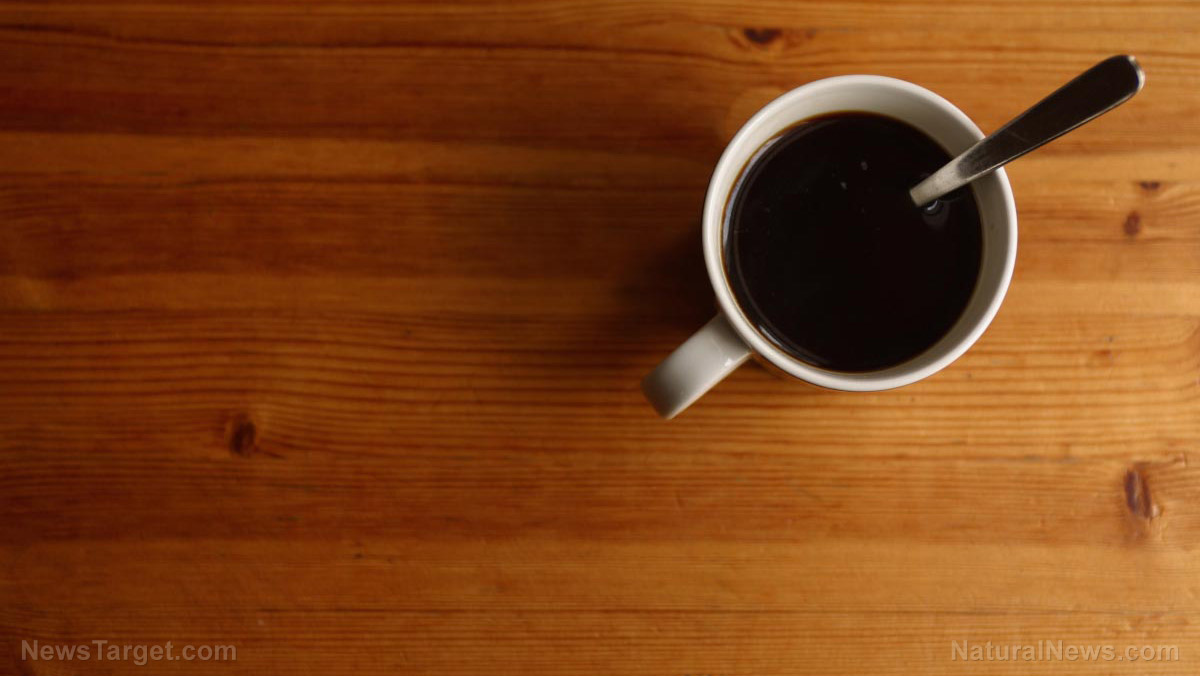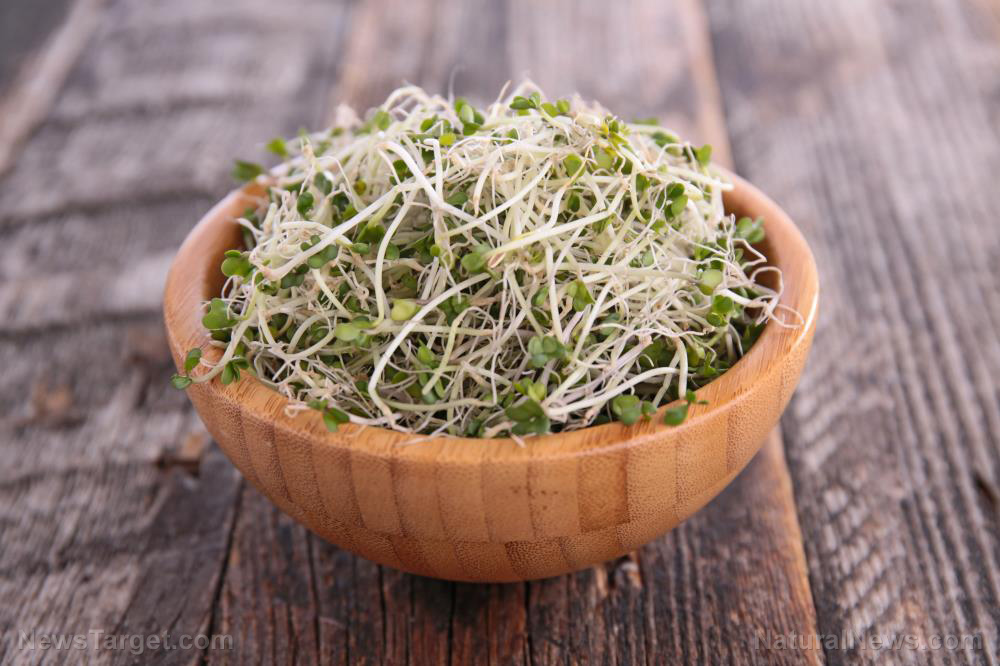Study reveals the power of COFFEE against COVID-19 infections
02/22/2024 / By Ramon Tomey

Whoever thought a hot cup of joe could help address Wuhan coronavirus (COVID-19) infection? Indeed, two studies have shown the power of coffee against this pathogen.
The first study published in Cell & Bioscience last November found that drinking approximately one to two cups of coffee daily is enough to inhibit COVID-19 infections caused by different strains of SARS-CoV-2. In particular, it found that the consumption of coffee addressed infections caused by the original SARS-CoV-2 strain and its subsequent variants – the B117 alpha strain, the B16172 delta strain and the B11529 omicron strain.
The study authors from Taiwan examined coffee’s ability to fight off COVID-19 infection by purchasing three kinds of coffee – ground, instant and decaffeinated – from supermarkets. They discovered that all the coffee types they scrutinized possess the ability to inhibit viral infection in cells.
The study authors also found that adding milk or sugar does not impact coffee’s antiviral properties. Even decaffeinated coffee “still has the capability to interrupt SARS-CoV-2 infection, which is important to know for caffeine-sensitive populations.” Moreover, they mentioned in their paper that “the optimal timeline for coffee to inhibit SARS-CoV-2 infection is within six hours” after drinking. (Related: Adding milk to coffee can help fight inflammation, suggests study.)
According to the researchers, there are two ways coffee protects human cells against SARS-CoV-2 infection. First, compounds in coffee inhibit the spike protein’s ability to bind with human angiotensin-converting enzyme 2 (ACE2) in human cells. Second, they reduce the activity of transmembrane serine protease 2 (TMPRSS2) and cathepsin L (CTSL).
Human knowledge is under attack! Governments and powerful corporations are using censorship to wipe out humanity's knowledge base about nutrition, herbs, self-reliance, natural immunity, food production, preparedness and much more. We are preserving human knowledge using AI technology while building the infrastructure of human freedom. Learn about our free, non-commercial AI / LLM project here. Support our efforts to build the infrastructure of human freedom by shopping at HealthRangerStore.com, featuring lab-tested, certified organic, non-GMO foods and nutritional solutions.
“Taken together, drinking one to two cups of coffee as well as decaffeinated coffee daily can potentially reduce SARS-CoV-2 infection – including wild-type, alpha, delta and omicron variants,” the researchers concluded.
Same antiviral properties also present in coffee leaves
Another study by the same research team from Taiwan focused on the ability of Coffea arabica leaves to address SARS-CoV-2 infection. Their earlier study published in July 2022 in the International Journal of Biological Sciences found that C. arabica leaves can inhibit the entry of the pathogen behind COVID-19 and its various strains into human cells.
This is because C. arabica leaf extracts have several phytochemicals that are also present in coffee beans. These include chlorogenic acid, caffeine, quinic acid and mangiferin. They inhibit infection by preventing the viral spike protein from binding with ACE2 receptors in human cells and reducing the activity of TMPRSS2.
During an appearance on the Taiwanese program “Health 1+1”, professor emeritus Jin-Jian Zhang of the National Taiwanese University‘s College of Medicine expounded on the benefits of coffee. The professor with years of research experience in coffee under his belt said daily coffee consumption can alleviate inflammation, enhance immunity, and reduce the risks of cardiovascular diseases and cancer.
According to Zhang, coffee’s association with longevity is linked to the various bioactive compounds present in it – the same compounds that contribute to its antiviral properties. These compounds such as chlorogenic acid, caffeic acid, trigonelline, cafestol and melanoidins form during the roasting process, and exhibit antioxidant properties to some extent.
The professor also pointed out that coffee can help address depression, citing two mechanisms. First, coffee can increase the population of beneficial bacteria in the gut – with higher populations of good bacteria contributing to improved sleep quality. Second, the aroma of coffee beans can trigger the release of feel-good hormones in the body – enhancing overall happiness in turn.
Zhang shared that he consumes coffee with added milk, mainly to mitigate its potential effects on the digestive system. However, newer research has found that coffee with added milk offers greater benefits as the cysteine in milk combines with coffee’s polyphenols, enhancing the drink’s anti-inflammatory activity.
However, the professor advised against adding non-dairy creamer or sugar to coffee. Non-dairy creamer mainly contains trans fats that aren’t good for the body, while sugar may contribute unnecessary calories.
Head over to CoronavirusFoods.com for more about the antiviral properties of coffee and other foods.
Watch this video about the surprising benefits of coffee.
This video is from The Truth About Cancer channel on Brighteon.com.
More related stories:
Breakthrough: This fermented Japanese superfood can inhibit SARS-CoV-2 infections, researchers find.
Study shows green and black tea can inactivate several COVID-19 subvariants.
Sources include:
CellAndBioscience.BioMedCentral.com
Submit a correction >>
Tagged Under:
biomedical research, coffee, covid-19, Cures, food cures, food is medicine, infections, natural cures, pandemic, remedies, research, spike protein, Wuhan coronavirus
This article may contain statements that reflect the opinion of the author




















